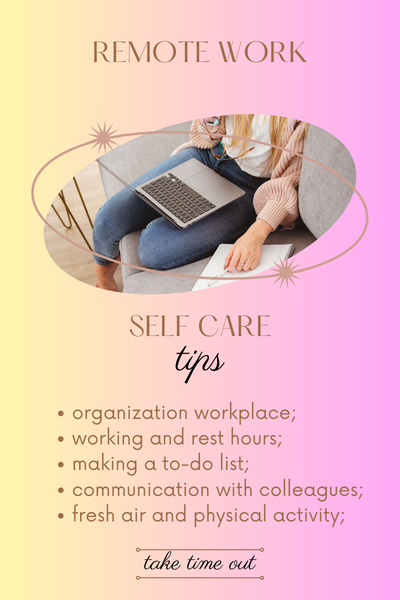
Remote Work in 2023: Pros and Cons You Need to Know for a Successful Work-From-Home Experience

ARE YOU CONSIDERING REMOTE WORK?
In recent years, remote work has become increasingly popular, allowing people to work virtually anywhere with an internet connection. The COVID-19 pandemic has accelerated this trend as companies around the world have shifted to remote work to ensure the safety of their employees.
Now in 2023 either by choice or demand many people have returned to the office space, however many are still staying at home due to more flexibility, cost, and family arrangements. Remote work does offer a number of benefits, including increased flexibility, improved work-life balance, and reduced commuting time and costs.
However, it also presents unique challenges, such as communication and collaboration difficulties, and the need for self-discipline and time management. In this blog, we will explore the world of remote work, including its advantages and challenges, and provide tips on how to make the most of this flexible and rewarding way of working.
Remote Work in 2023
Remote work is booming in 2023, but it’s not without its challenges. Let’s take a look at the pros and cons along with the top 10 benefits and disadvantages of remote working to help you navigate this work trend.

pros
- Increased flexibility for better work-life balance
- No more commuting time or costs
- Saves money on office space
- Greater autonomy leads to increased productivity
- Expanded job opportunities
CONS
- Isolation and lack of social interaction
- Staying motivated can be challenging
- Communication barriers can hamper collaboration
- Limited interaction with coworkers can lead to FOMO
- Lack of social interaction can affect mental health


STILL, CONSIDERING REMOTE WORK?
Remote work can be a game-changer and it’s on the rise, but it’s not for everyone. If you’re seriously considering remote work, you’ll want to know about the advantages and disadvantages and whether it is all it’s cracked up to be. Let’s explore.
Top 10 ADVANTAGES OF
REMOTE WORK
- Increased flexibility: Remote work allows for more flexibility in terms of where and when work gets done. This can lead to a better work-life balance and increased productivity.
- No commute: Eliminating the need to commute to work saves time and money, as well as reducing carbon emissions.
- Reduced costs: With remote work, companies can save money on office space, utilities, and other expenses associated with maintaining a physical office.
- Greater autonomy: Remote workers often have more control over their work environment and are empowered to make decisions that lead to increased productivity.
- Better health: Remote work eliminates exposure to communal illnesses, reduces stress associated with commuting, and allows for more time to focus on self-care.
- Expanded job opportunities: Remote work can provide access to job opportunities that would otherwise be unavailable due to location constraints.
- Increased diversity: Remote work can allow for a more diverse and inclusive workforce, as it enables companies to hire individuals from a wider range of locations and backgrounds.
- Better employee retention: Offering remote work can be a valuable retention tool, as it can increase employee satisfaction and reduce turnover rates.
- Increased productivity: Studies have shown that remote workers are often more productive than their office-based counterparts due to fewer distractions and greater autonomy.
- Better work-life balance: Remote work can provide more time for personal pursuits, hobbies, and family time, leading to increased overall satisfaction with work and life.
Overall, remote work offers a range of benefits that can lead to happier, healthier, and more productive workers.
MUST HAVES AND SUPPLIES TO LOOK OUT FOR
5 Star Rating: Memory Controller Pegboard Ergonomic Workstation
My Favorite! Since purchasing I have never bought any other brand.
Various colors and Designs. No more spilt drinks. 28% off right now
Top 10 DISADVANTAGES OF
REMOTE WORK
- Isolation and loneliness: Working from home can be a lonely experience, as remote workers may lack social interaction and support from colleagues.
- Difficulty separating work and personal life: With no clear boundaries between work and personal space, remote workers may find it difficult to switch off and disconnect from work.
- Distractions at home: It can be hard to stay focused and motivated when surrounded by household distractions like laundry, chores, or family members.
- Lack of face-to-face interaction: Remote workers miss out on the spontaneous conversations and collaboration that happens naturally in an office setting, which can hinder creativity and innovation.
- Technology issues: Technical issues with internet connectivity, equipment, or software can be frustrating and time-consuming, particularly if there is no IT support readily available.
- Blurring of work and personal time: Without clear work hours, remote workers may end up working longer hours and experiencing burnout.
- Reduced visibility and career advancement opportunities: Remote workers may miss out on career development opportunities, promotions, and networking events due to their lack of visibility in the office.
- Limited access to resources: Remote workers may not have access to the same resources, tools, or equipment as their office-based colleagues.
- Lack of professional development opportunities: Remote workers may miss out on learning opportunities that occur naturally in a workplace, such as mentoring or on-the-job training.
- Feelings of disconnection and disengagement: Remote workers may feel disconnected from the company culture and mission, which can lead to decreased motivation and job satisfaction.
While remote work has its advantages, it is important to consider these potential disadvantages before making the transition.
TAKE CARE OF YOUR WORKING ENVIRONMENT
Several Color Modes and More with easy clamping system to position perfectly.
Ergonomic Design for Back & Hip Pain Relief. 2 Height Options and various colors available.
Right Now 36% Off was $199.98 now $127.98. Flip Up Arms for easy under desk manoeuver.
Quiet Clicks, Ergonomic Mouse. 3 Colors plus Right and Left Handed Available
10 WAYS REMOTE WORK CAN AFFECT YOUR MENTAL HEALTH
- Isolation and loneliness: Working from home can lead to feelings of isolation and loneliness, especially if you live alone or have limited social support.
- Lack of boundaries: Without clear separation between work and personal life, it can be difficult to switch off and disconnect from work, leading to increased stress and burnout.
- Increased stress: Remote work can increase stress levels, especially if you have to juggle multiple responsibilities like caring for children or elderly relatives.
- Lack of social interaction: Remote workers may miss out on the social interaction and support that comes with working in an office environment, leading to feelings of disconnectedness and depression.
- Zoom fatigue: Video conferencing can be mentally exhausting, leading to feelings of burnout and reduced motivation.
- Difficulty disconnecting: With no clear work-life balance, it can be difficult to disconnect from work, leading to increased stress and anxiety.
- Reduced job security: Remote work can lead to feelings of job insecurity and uncertainty about the future, leading to anxiety and stress.
- Limited career development opportunities: Remote workers may miss out on career development opportunities and networking events, leading to feelings of stagnation and lack of purpose.
- Difficulties with communication: Miscommunication or lack of communication can cause frustration, anxiety, and confusion among remote teams.
- Reduced access to mental health resources: Remote workers may have limited access to mental health resources like in-person therapy or support groups, leading to increased stress and reduced mental wellness.
While remote work can be beneficial in many ways, it is important to be aware of the potential impact on mental health and take steps to address any challenges that arise.
CONCLUSION
While remote work has its advantages, it is important to consider these potential disadvantages before making the transition. Remote work can have a significant impact on mental health, and it is important to be aware of the potential challenges and take steps to address them. Employers and employees should work together to establish clear boundaries and communication channels, prioritize self-care and mental health, and seek out support when needed. By doing so, remote work can be a fulfilling and rewarding experience for everyone involved.
Latest Trends in remote work
For More Information,
Check out the latest Remote Work Trending News by Business News Daily.
Topic includes:-
Is Remote Working Effective | How Remote Work has Evolved | The Current State of Remote Work | What the Future Holds | Adapt your Approach for Remote Work Success.






























